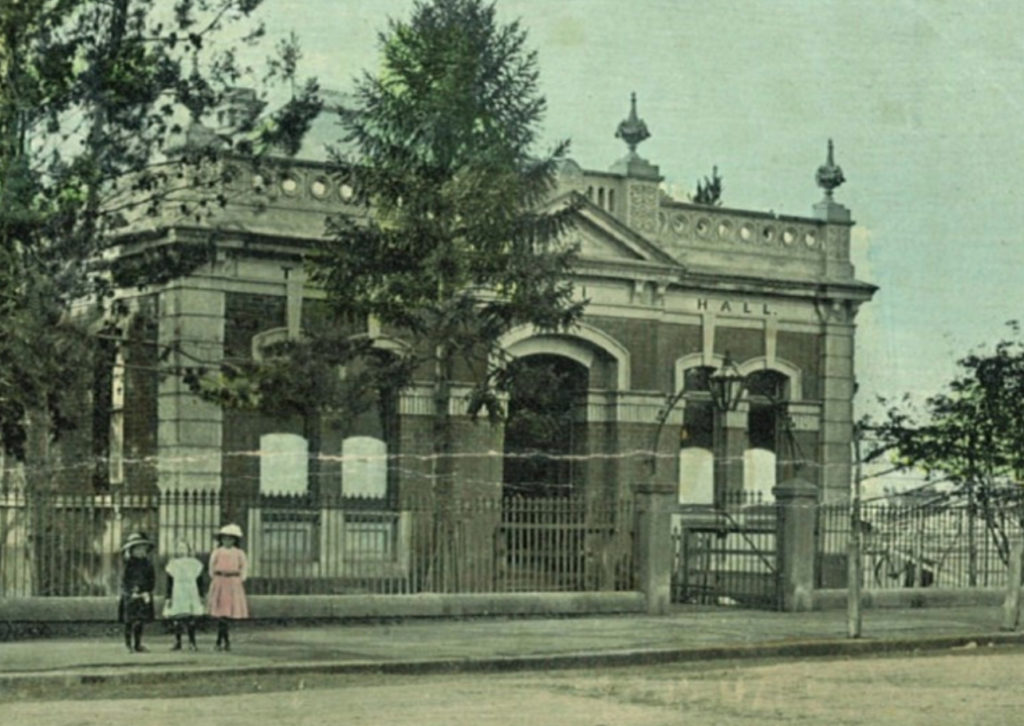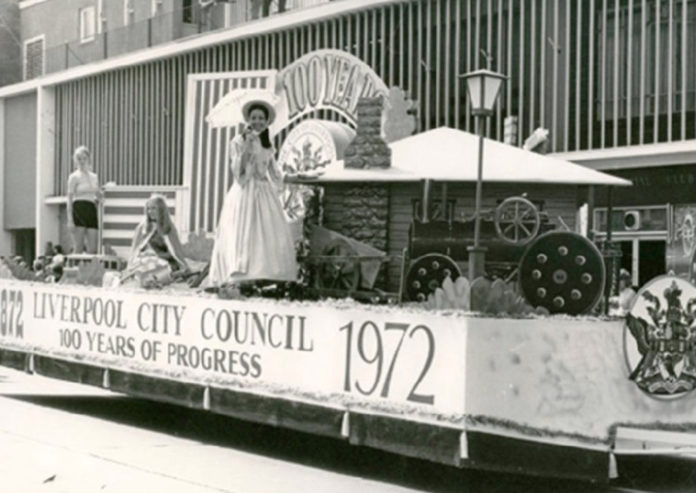Liverpool City Council is marking an important historical milestone this month –150 years of local government.
On 27 June 1872, following a petition by residents, the Liverpool area was styled the Municipal District of Liverpool by NSW Governor, Sir Hercules Robinson and Liverpool Council was formed.
In September 1872, Liverpool Council also elected its first Mayor, Captain Richard Sadleir, and Aldermen, now referred to as Councillors. The Liverpool suburb of Sadleir, part of the Green Valley Housing Estate, was named after the first Mayor.
The 150th anniversary of Liverpool Council is one of several important milestones in Liverpool’s history, including 40,000+ years of First Nations heritage, the founding of the town of Liverpool in 1810 by Governor Lachlan Macquarie, and the granting of city status to Liverpool in 1960.
Liverpool Mayor, Ned Mannoun said the Liverpool region has a fascinating history.
“Our area has rich First Nations, colonial and migrant heritage, and Liverpool is considered one of the oldest towns founded in Australia,” said Cr Mannoun.
“Marking 150 years since the formation of Liverpool Council is important in acknowledging the progress and achievements of our area and its people.”
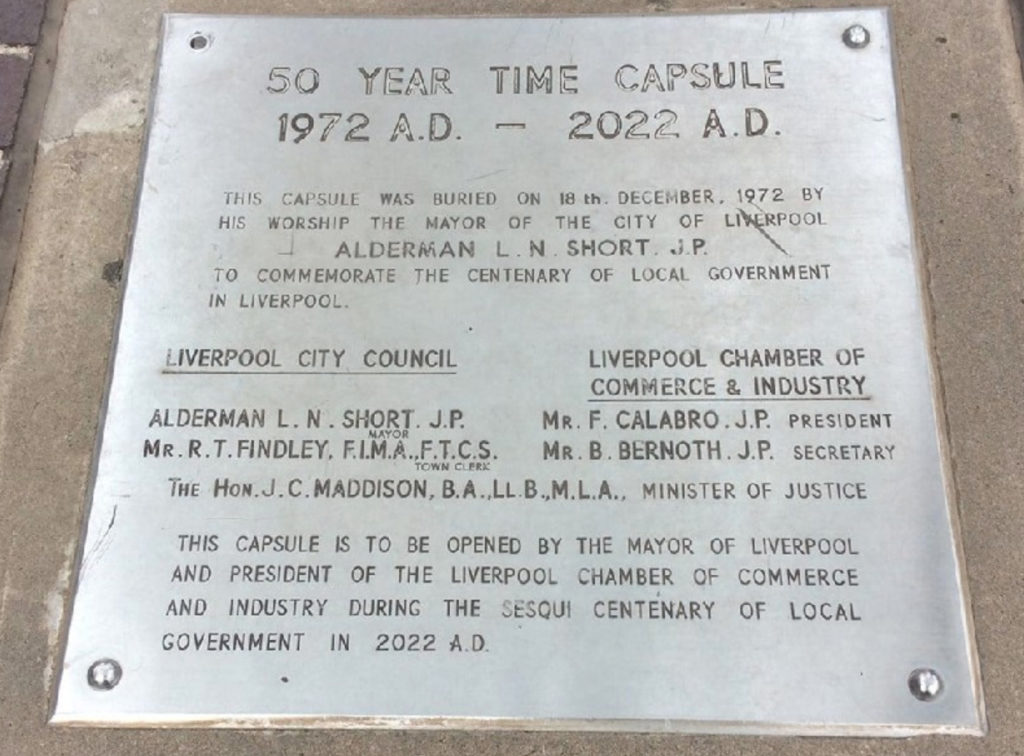
Since being granted municipality status in 1872, the population of the Liverpool area has grown from around 1,700 to almost 250,000 people in 2022.
To mark the significant occasion, several events are planned across the rest of year, including unearthing a time capsule buried in 1972, a special film screening at the Casula Powerhouse Arts Centre of Peter Weir’s famous documentary Whatever Happened to Green Valley? on Saturday 9 July, and a historic timeline display at Liverpool City Library.
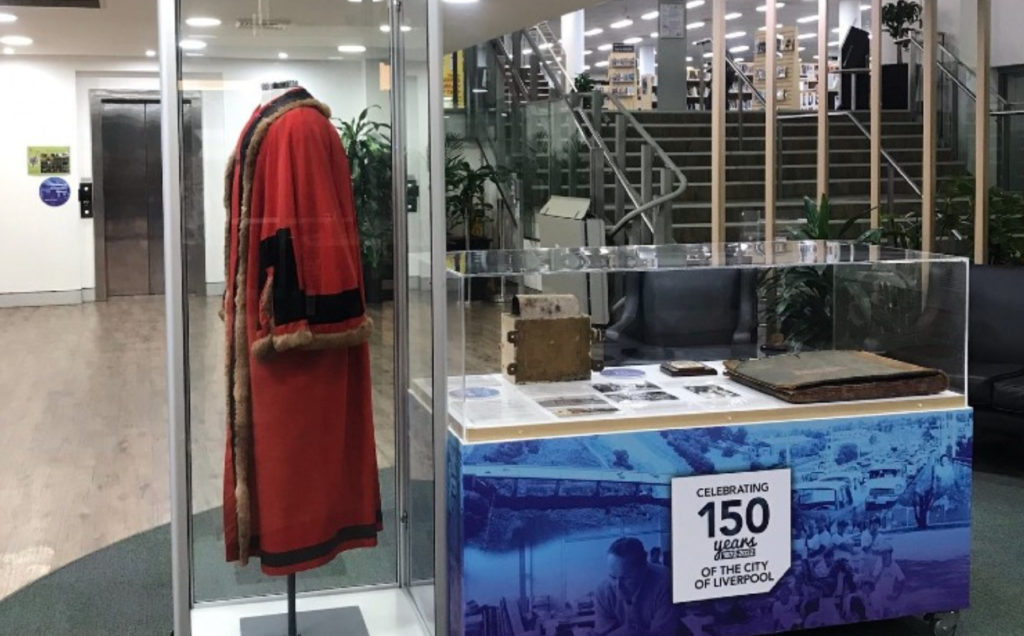
A special commemorative publication –The City of Liverpool Gazette – will also be published to coincide with the anniversary and will feature contributions from several historical societies about the significant events and achievements of the Liverpool area.
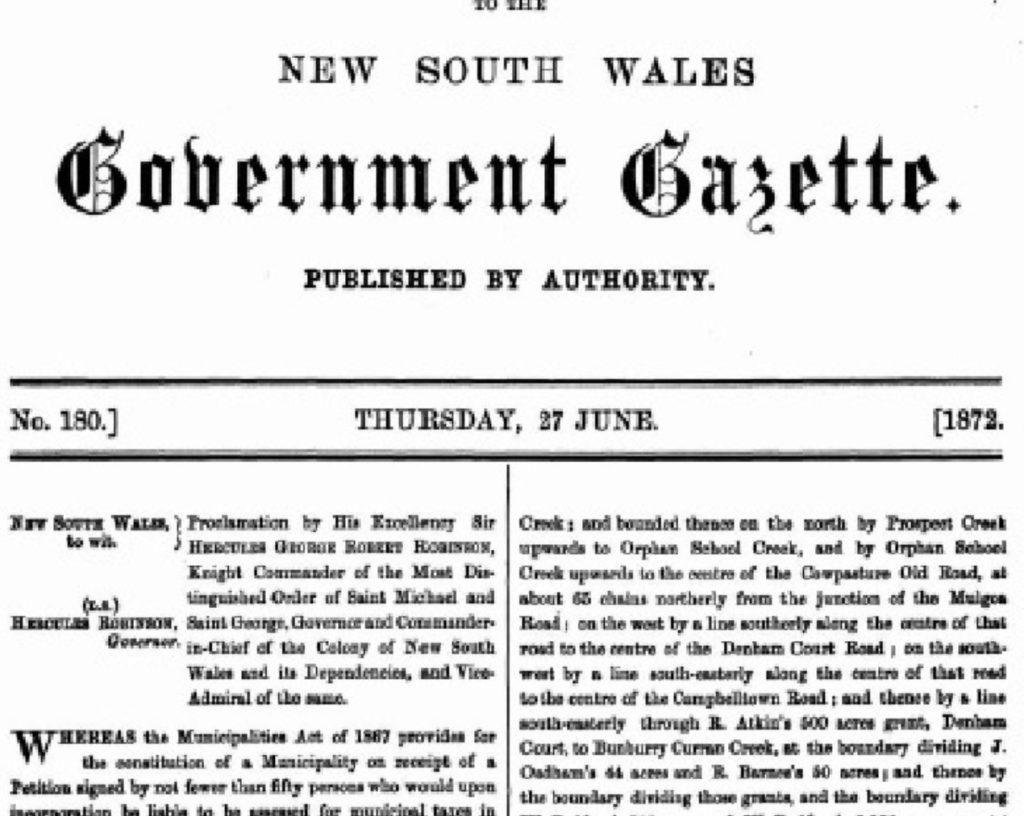
School children in Liverpool are also participating in the 150th celebrations through a range of engaging, digital-focused workshops run by Liverpool City Library asking the question: Where are we now and where are we going? Students are asked to contemplate what life in Liverpool will be like in 2072 to build a new digital time capsule: Kids voices for the future!
To find out more about the 150th anniversary celebrations and Liverpool’s history, visit: https://www.liverpool.nsw.gov.au/council/liverpool-municipality-150th-anniversary
